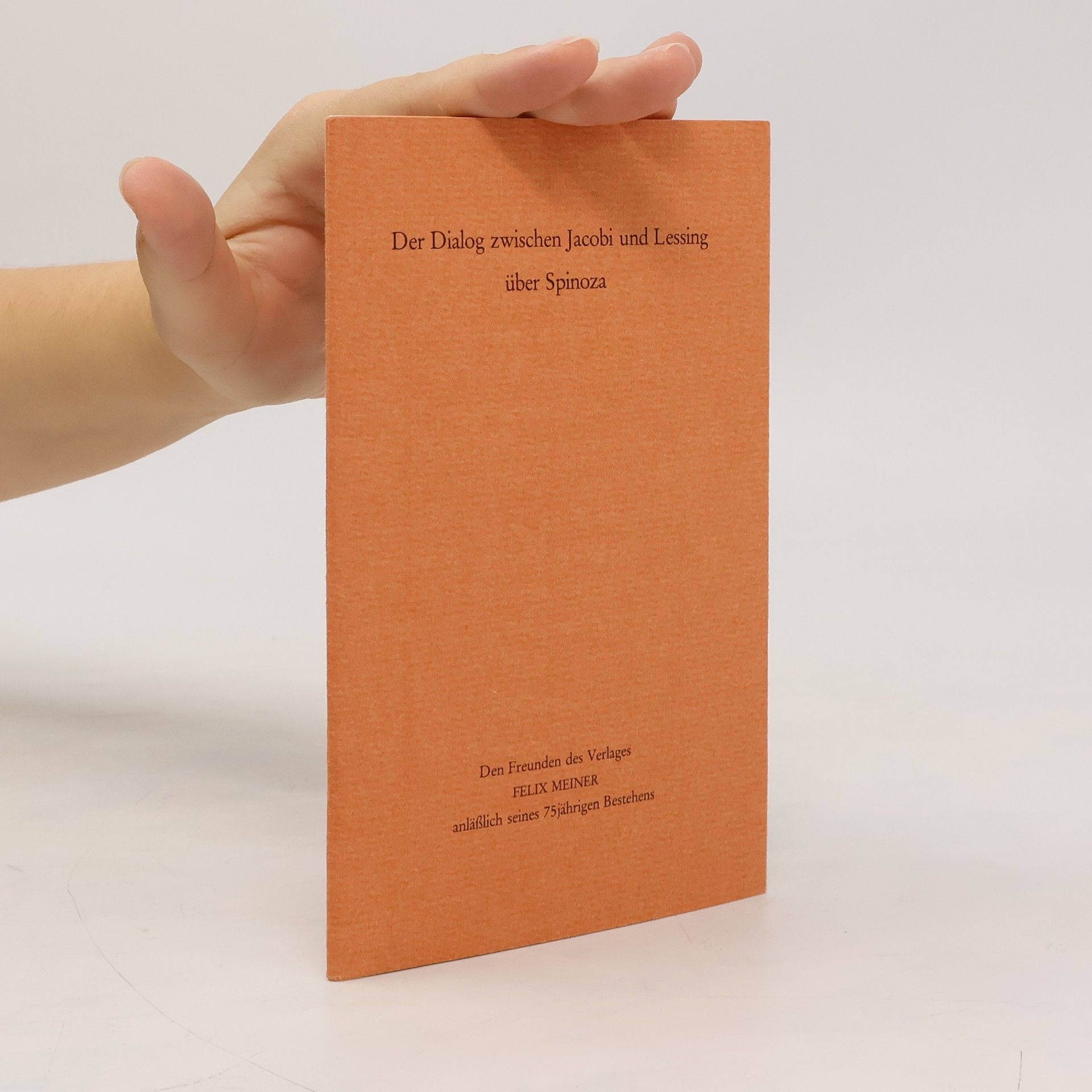Friedrich Heinrich Jacobi Livres
Friedrich Heinrich Jacobi fut un influent philosophe et personnage littéraire allemand, connu pour sa critique de la pensée des Lumières, qu'il associait au nihilisme. Préconisant la foi et la révélation plutôt que la raison spéculative, Jacobi anticipa les critiques contemporains de la philosophie séculière. Ses entreprises littéraires se concentrèrent sur la réconciliation de l'individualisme des Lumières avec l'obligation sociale. Il rechercha un équilibre entre la liberté personnelle et les nécessités de l'engagement collectif.




Die Korrespondenzen der letzten Eutiner Jahre Jacobis erfahren nur durch eine Parisreise von Ende 1801 bis Anfang 1802 eine größere Unterbrechung. Neben den philosophischen Auseinandersetzungen mit Kant, Fichte, Schelling und Hegel geht es am Anfang dieser Jahre auch noch einmal um die Konversion des Grafen Friedrich Leopold zu Stolberg-Stolberg. Zu den bisher bekannten Briefpartnern jener Jahre – wie beispielsweise Reinhold, Jean Paul, Bouterwek, Brinckmann, Goethe, Köppen, Perthes, Schenk und Johanna Margaretha Sieveking – kommt vor allem eine neue wichtige Verbindung hinzu: Germaine de Staël-Holstein. 1805 wird Jacobi an die Bayerische Akademie der Wissenschaften berufen; der Band schließt mit den Briefen, die er auf seiner Reise nach München schreibt.
Jádro knihy tvoří spektakulární polemika F. H. Jacobiho s M. Mendelssohnem o Spinozově filosofii. Tato polemika, na níž se podíleli i Lessing, Goethe a Herder, definitivně vrátila Spinozu do filosofie.